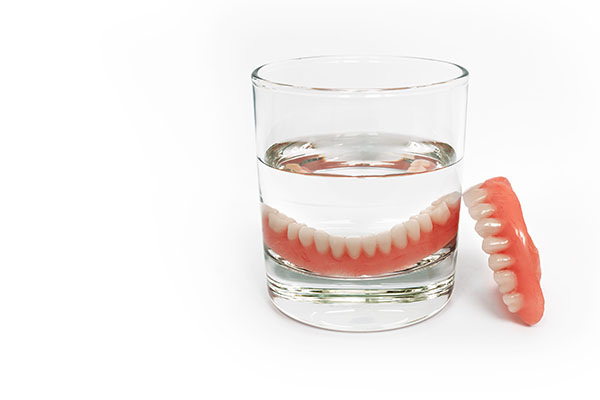 Denture care is an important part of denture maintenance. You depend on your dentures to perform day-to-day tasks, and it's not uncommon for them to need repair or replacement over time. The key to keeping your dentures in good shape is making sure that they are cared for properly. Denture care goes beyond just brushing and flossing; you should also be cleaning the area around the gums where food can get stuck, as well as regularly replacing lost retainers like elastics. There are three denture-related problems that denture wearers must treat in order to prolong the life of dentures and increase their comfort: denture odor, denture dryness, and denture irritation.
Denture care is an important part of denture maintenance. You depend on your dentures to perform day-to-day tasks, and it's not uncommon for them to need repair or replacement over time. The key to keeping your dentures in good shape is making sure that they are cared for properly. Denture care goes beyond just brushing and flossing; you should also be cleaning the area around the gums where food can get stuck, as well as regularly replacing lost retainers like elastics. There are three denture-related problems that denture wearers must treat in order to prolong the life of dentures and increase their comfort: denture odor, denture dryness, and denture irritation.
Denture odor
Denture odor is a denture-related condition that causes dentures to smell bad. Performing proper denture care can eliminate odor and:
- Eliminate the sliminess of your dentures
- Improve your sense of taste and smell
- Boost self-confidence and make you more comfortable during social situations
There are two types of denture odor: denture stench and denture breath odor. Denture stench smells like sulfur or rotten egg, while denture breath odor typically smells more like ammonia or urine. Some denture wearers can't smell denture odor, but others detect it almost constantly – regardless of whether their dentures are clean or not. If you're having denture odor problems that aren't resolved with denture cleaning, diet changes, and/or by drinking more water, your dentist can help.
Denture dryness
Denture dryness refers to denture wearers that experience irritation and blistering of their gums, which is often caused by dentures or denture adhesives not fitting properly or being worn too long. Performing proper denture care can eliminate dryness and:
- Improve comfort
- Reduce oral mucosal damage
- Boost self-esteem
If you're finding that your dentures feel uncomfortable when you are wearing them, denture dryness may be to blame. Denture wearers should seek denture care that relieves denture dryness, like denture moisturizers, denture cleansers, and denture gels. If you are experiencing denture dryness symptoms like redness and soreness of the gums or lips, see your denture care provider as soon as possible.
Denture irritation
One common denture-related problem is denture irritation, which can be caused by wearing dentures that are too large or small. Performing proper denture care can eliminate irritation and:
- Restore comfort and confidence
- Keep your mouth healthy
- Reduce the risk of gum disease
When dentures don't fit properly, they can rub against the gums, creating sores and soreness. Sometimes dentures can irritate your gums, especially if you have denture-related abrasions under your dentures or around the gum line. If you experience denture irritation without denture odor or dryness, it could be because the dentures are too tight or your denture adhesive isn't working properly.
Denture care is an important aspect of denture care and maintenance, but there are also several denture-related issues that denture wearers must treat. The three denture problems mentioned in this denture care article are denture odor, denture dryness, and denture irritation. If you experience any of these symptoms, see your denture care provider.
Related Posts
If you are new to the denture world, you may be confused when you think of toothbrushes and denture care. Most people have this misconception that since you have dentures, you no longer have to brush your teeth. This statement couldn’t be any more wrong. Brushing is just one important step in caring for your…
Learning how to live your life again when you are worried about denture care can be challenging. One of the first steps in learning the proper denture care is learning good, healthy eating habits for your new smile. Return to the quality of life you deserve. Getting a new smile is the first step in…
Denture care is an essential part of a healthy lifestyle, but few people know the best way to care for their teeth. Denture hygiene is just as important as brushing and flossing your natural teeth! What are dentures? How do dentures work? What types of dentures are there? How do I clean them? Who can…
